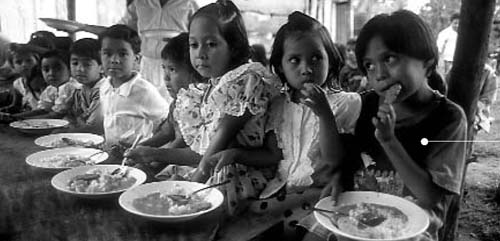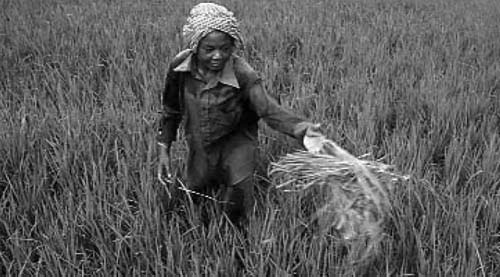
FAO /20216/L. DEMATTEIS

FAO /19632/G. BIZZARRI

FAO/21028/R. FAIDUTTI
Over the 10 000 years since the Neolithic Age, human population growth has been correlated with intensification in food production systems, primarily agriculture, which has also greatly modified the world’s ecosystems, for better or for worse. Given the present and anticipated increases in world population, not to mention current and projected environmental problems and ecological stress from agriculture, further agricultural intensification will be needed. What ethical issues have been (or might have been) raised in connection with past episodes of agricultural intensification? Who can make a difference in directing the course of future intensification, and what ethical responsibilities do these potential actors bear?
Any answer to these questions will be complex. It will involve sophisticated analyses of the historical and natural processes that have influenced and continue to influence episodes of agricultural intensification. It will also involve an account of the social, economic and psychological underpinnings of both individual and collective action, and this account will need to be woven into detailed factual analyses of the land, climatic and genetic endowments in specific places. The focus in this ethics paper is just one element of the problem: the way that ethical concepts and terms can be used to articulate the normative dimension – what ought to be the case with respect to human purpose and conduct whenever episodes of intensification occur. Although several examples from the history of intensification are discussed, the paper does not attempt to provide an exhaustive or representative survey of ethical issues that have been raised in connection with intensification. Neither does it offer a general or universally applicable answer to any of the questions above, much less to the comprehensive question, “What ought to be done with respect to intensification?”. Instead, the focus is on building capacity for debate and analysis of these ethical questions, with the expectation that specific answers will be the result of more focused inquiries conducted by people with more proximate access to and knowledge of circumstances that are relevant to specific cases.
Debate and analysis of ethical issues are difficult for several reasons. In many cultures, ethical norms are deeply embedded in traditions and religious practices, while in others they are thought to be highly personal. With global issues, the multiplicity of cultural, linguistic and ethical traditions means that one cannot draw upon a common set of terminology or working assumptions. Activities that require coordination to specify or achieve goals or to implement ideas and concepts may be described as “social”, “economic” or “political” rather than ethical, leading to a situation in which questions about what “ought to be” are not recognized as ethical ones. As social science has evolved to analyse activity in these domains, the scientific practice of focusing on data collection and the formulation of refutable hypotheses concerning relationships among data has tended to push aside explicit attention to underlying normative concerns or assumptions. The ethical dimension of such questions can be obscured by implicit and unquestioned assumptions. Each of these factors complicates the articulation, defence and critique of ethical issues.
It is therefore useful to undertake planning and analytical exercises in which ethical questions are the primary focus. The goal here is to provide a basic conceptual framework in ethics that will aid in the articulation and justification of norms for intensification, although this framework will also be applicable in other areas. As already stated, this paper does not endorse a particular set of answers to the ethical questions that arise from intensification. Instead, conceptual tools that allow these questions to be articulated and discussed are presented and examples are given for illustrative purposes. A short discussion on intensification is followed by the presentation of a general framework for organizing and considering ethical issues. This framework is then used and developed in a series of discussions about the ethical issues associated with agricultural intensification. ·